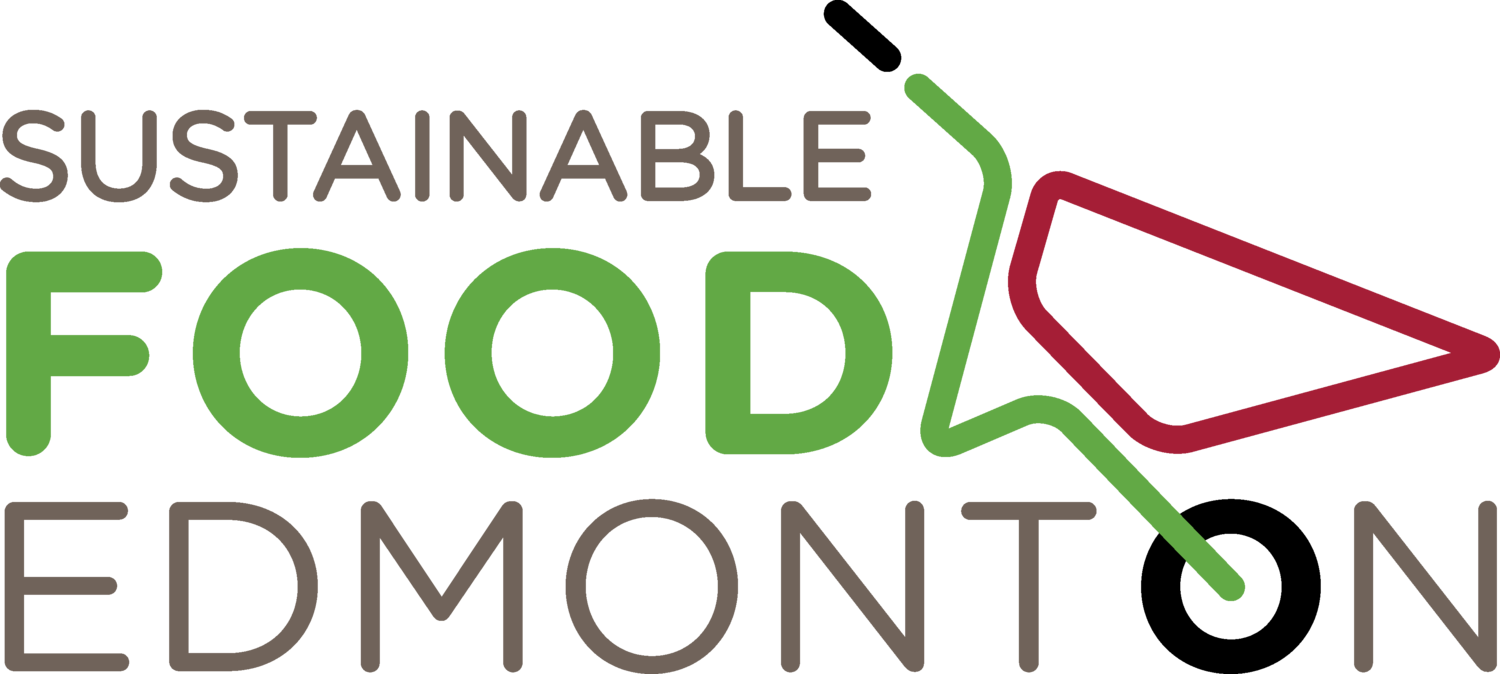Mel Pristley, from Vue Weekly wrote a lovely article about the future of Sustainable Food Edmonton in Edmonton. Check it out here or read more below.
A central hub for all of Edmonton’s food events, distributors, producers, organizations and consumers—and everyone in between.
That’s the vision Sustainable Food Edmonton (SFE) has, and it is certainly something that our city would benefit from enormously. Stephanie Spafford, president of its board of directors, describes SFE as in the middle of a major shift in focus, with a rebranded identity and new executive director to lead the way.
“I’ve been involved with Sustainable Food Edmonton for a little over three years now and since the very beginning I was like, ‘Why is all this information not in one spot?'” Spafford says. “People access food in so many different ways, whether it’s through growing, or maybe people who just love to eat food maybe want to know what restaurants are sourcing organic—things like that. We want to figure out what that looks like and where we can play a role.”
This is a marked difference from SFE’s origins. Founded in 1989 as the Personal Community Support Association, the group has always been a program-based community-support organization. It began focusing exclusively on food in the early 2000s and developed programs like City Farm Team, later merging with the Community Garden Association and changing its name to Sustainable Food Edmonton in 2011.
SFE’s current programming is divided into three parts: Urban Ag High, which helps high schools develop their capacity for various urban agriculture projects; Little Green Thumbs, a classroom-based program linked to the elementary school curriculum; and Community Gardens, which assists community members set up gardens around the city. In all three instances, SFE is not the instigator but rather a source of information and networking for individuals who have taken the initiative to look into these projects and programs independently.
“Forward thinking and strategic-wise, our goal is to become almost like a hub,” Spafford says. “We have a ton of information; we know typically what’s going on in the city when it comes to food and I think to become more of a resource base for that, is what’s kind of been talked around the boardroom table.” SFE’s board of directors is a resource unto itself, she explains, noting that it is comprised of individuals from all parts of Edmonton’s food system.
Even though SFE hasn’t yet formalized the structure of a centralization of food information, the organization encourages everyone with any question about food—from where you can learn to can tomatoes to finding a list of sustainably inclined restaurants—to get in touch through its website (sustainablefoodedmonton.org). SFE is available to help on a one-on-one basis for now, until something more concrete and wide-reaching is established.
“There’s got to be more reach than just the program, because we want everyone to understand sustainable food,” Spafford says. “It’s expanding beyond the classroom and beyond the community gardens. We used to just be in those places and now we want to be all over Edmonton.”
